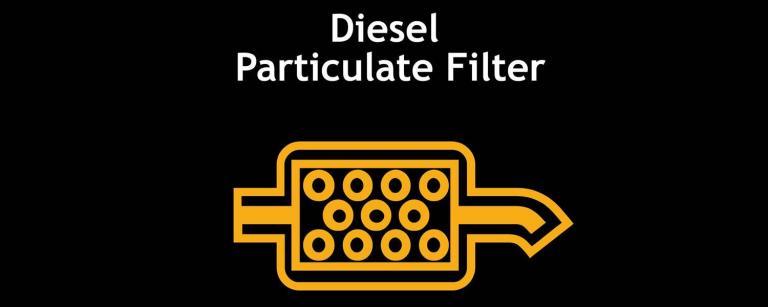What is a diesel particulate filter?
Most modern Diesel vehicles are equipped with a Diesel Particulate Filter (DPF), specifically designed to reduce soot and carbon from the exhaust gases. Lowering your vehicle’s emissions to meet UK & European emissions legislation, further, reducing the vehicle tax rate.
Diesel particulate filter minimises the level of harmful particles released from Diesel Vehicle Exhaust systems.
How does a DPF work?
DPF gathers particles of soot in the exhaust system. As with any filter, they have to be emptied and cleaned regularly to maintain vehicle and engine performance. This process is called ‘regeneration’.
There are a few types of DPF regeneration;
Passive regeneration -
The DPF will clean itself by heating up and burning off the accumulated particles. A high exhaust temperature is required in order to regenerate a DPF, which can be achieved by driving normally on long journeys.
Active regeneration –
Occurs when additional fuel is injected automatically as part of the Electrical Control Unit (ECU). Once the filter has reached its limit, usually around 45% capacity, the ECU will burn more fuel in an effort to clean the DPF by burning off the soot.
Forced regeneration –
Some garages and vehicle manufacturers will clean your DPF to remove any trapped suit.
If you’re driving your vehicle on regular short journeys, it’s unlikely your exhaust or DPF will reach a temperature where it can regenerate itself. If there’s an issue with your DPF, in most cases, the driver will be notified with a warning light.
Since 2014, a DPF inspection is mandatory during any M.O.T inspection and is legally required to be in working in order for an M.O.T certificate to be granted. Further, driving a vehicle that has the DPF removed is a criminal offence, which can result in a £1000 fixed penalty for breaching emission laws.
What should i do if a DPF warning light appears?
- If your DPF warning light appears, it is notifying the driver that the DPF needs assistance with regeneration. Typically, this can be resolved by driving the vehicle at 50mph for roughly 10 – 20 minutes or keeping the engine at 2500 RPM – 3500 RPM. The warning light will turn off once the DPF has successfully regenerated.
- If traffic or speed limits restrict you from assisting the DPF regeneration process, your vehicle handbook will contain guidance for you to follow.
- If two or more DPF warning lights appear on your dashboard, you must contact your vehicle manufacturer immediately and arrange for the DPF to be regenerated manually.

DO NOT ignore a DPF warning. It can result in a loss of power and lead to serious mechanical issues, which aren’t covered by the vehicle warranty. A blocked DPF will result in harmful exhaust emissions remaining trapped within your engine.
Additional information:
It’s the lease holders’ responsibility to maintain and regenerate the DPF.
DPF’s automatically regenerate, but at times need assistance (a warning light will notify you when)
To assist the DPF regeneration process, you will need to drive the vehicle over a longer than usual distance at around 2500rmp until the warning light goes off
When you see a warning light, it’s essential that you take immediate action!
If you see two warning lights, call your vehicle manufacturer and arrange an immediate DPF repair.
Need more information? Call us: 0161 928 3456
Or email your questions to: [email protected]
WE'LL FIND THE BEST DEALS FOR YOU!
Our base rental pricing means you save every month. No additional monthly charge and no hidden extras.
ASK THE EXPERTS
Get in touch with our team of experts today.
0161 928 3456 (UK NORTH) 0203 096 3705 (UK SOUTH) 0289 018 3336 (N. IRELAND)

